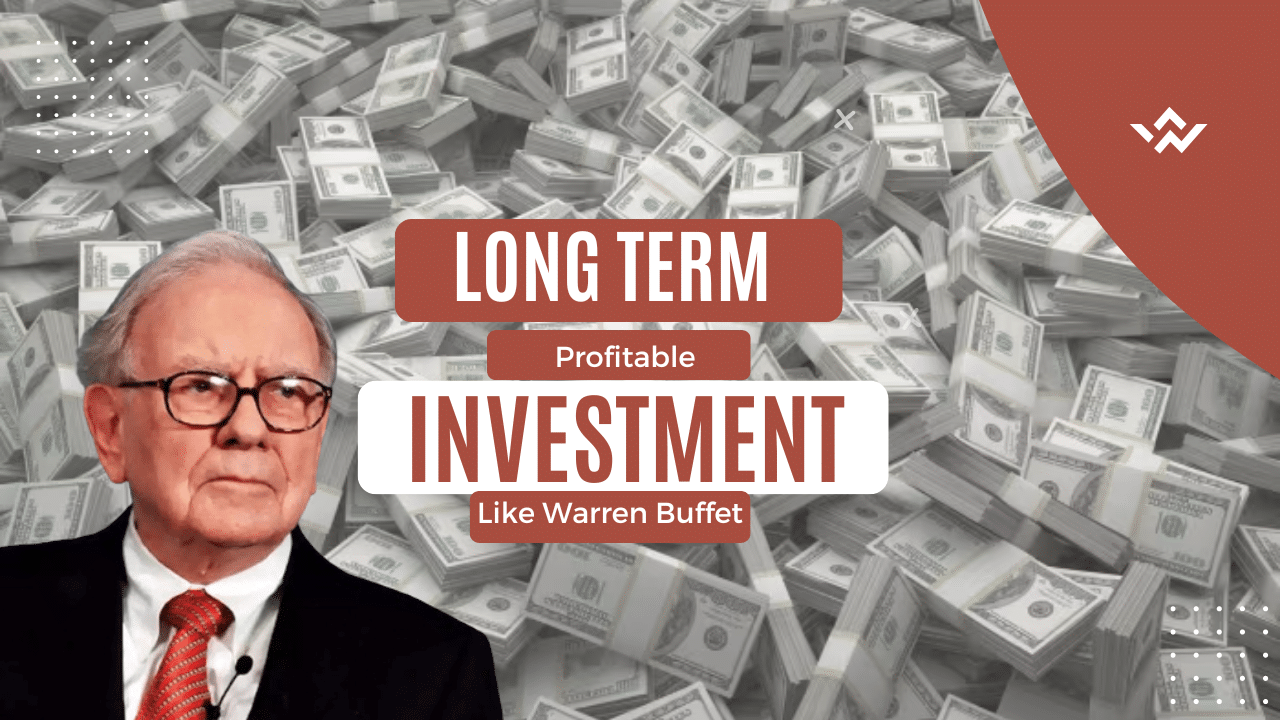10 Tips for Successful Long-Term Investing like warren Buffet.

Are you ready to navigate the complex world of investing with confidence? Great news, we have compiled 10 invaluable tips to help you achieve long-term success in the stock market, drawing inspiration from none other than the legendary Warren Buffett. Whether you’re a beginner or a seasoned investor, these tips are designed to steer you away from common mistakes and, most importantly, to help you generate substantial profits. Stick around, and you’re sure to discover real value in this article! 🚀
In the realm of investing, it’s a tale of winners and losers. While some investors wisely sell their successful stocks to secure gains, the pitfall lies in holding onto the underperformers, hoping for a rebound. Let’s face it – not all stocks are winners, and some may fizzle out. Our 10 tips aim to simplify the path to successful long-term investing, mirroring the strategies of the one and only Warren Buffett. Whether you’re just starting or have some experience under your belt, get ready for insights that will make your blog-reading experience a whole lot more informative! 🌟
KEY TAKEAWAYS
- The stock market can be uncertain, but certain key principles can improve your chances of long-term Investing success.
- Some important tips include sticking with successful investments and selling the ones that aren’t doing well, avoiding chasing after “hot tips,” steering clear of risky penny stocks, and sticking to a chosen strategy.
- If you have the time to wait, focusing on the future and thinking long-term investing can boost profits for almost any investor.
Hold On to Winning Stocks
Peter Lynch, a famous investor, talked about “tenbaggers” – stocks that grew ten times in value. His success came from sticking with a few of these stocks, even when they increased by a lot.
Lesson: Don’t follow strict rules; evaluate a stock on its own merit.
Stay Realistic about Losing Stocks
No guarantee exists that a stock will bounce back after a prolonged decline. It’s crucial to be realistic about poorly performing investments. Don’t be afraid to admit mistakes and sell off investments to prevent further losses. Always judge companies based on their merits.
Focus on the Big Picture, Not Small Movements
Instead of panicking over short-term changes in an investment, track its overall trajectory. Have confidence in the bigger story of your investment, and don’t be swayed by short-term ups and downs. Don’t stress over small differences in order types; focus on long-term success.
Avoid Chasing Tips
Never accept a stock tip without doing your own analysis. Tips can sometimes work out, but long-term success requires in-depth research rather than relying on tips from others.
Choose a Strategy and Stick to It
Stick with a single philosophy when picking stocks. Changing approaches frequently makes you a market timer, which can be risky. Follow the example of Warren Buffett, who stuck to his value-oriented strategy and avoided major losses during market crashes. Check out Warren Buffet top five oldest holdings including his Apple
Don’t Overemphasize the P/E Ratio
While many investors focus on price-earnings ratios, it’s unwise to place too much importance on a single metric. P/E ratios are best used alongside other analytical processes to get a more accurate picture of a stock’s value.
Think Long-Term and Focus on the Future
Making informed investment decisions requires looking ahead. Past data can indicate trends, but it’s never a guarantee. Invest based on future potential rather than past performance.
Be Open-Minded About Investments
Great companies aren’t always well-known, and many smaller companies have the potential to become big names. While small-cap stocks may be less familiar, historically, they’ve shown similar returns to large-cap stocks.
Avoid the Temptation of Penny Stocks
Low-priced stocks may seem less risky, but they can be riskier than higher-priced stocks due to less regulation and increased volatility. Whether a stock is $5 or $75, a loss is still a loss.
Consider Taxes, but Focus on Growth
While tax implications are important, they should not be prioritized over growing your money. Strive to minimize tax liability but keep in mind that high returns should be your primary goal.
What Is Long-Term Investing?
Long-term investing usually means holding onto something for three years or more. Whether it’s stocks or real estate, if you keep it for more than three years, it’s seen as long-term. When people sell something for a profit, they get charged capital gains taxes if investment they held onto it for over a year. If it’s less than a year, they pay taxes at their regular income rate, which isn’t as beneficial as the capital gains tax rate.
What Is the Safest Investment With the Highest Return?
No investment guarantees 100% safety, but certain options are safer than others and offer better returns. These safer choices comprise certificates of deposit, high-yield savings accounts, Series I savings bonds, Treasury Bills, and money market funds.
What Are the Cons of Long-Term Investing?
The main downside of long-term investing is the potential missed opportunities. Money locked into long-term investments cannot be utilized for other investment opportunities, especially those that could bring in quick profits. However, this might not be a problem in the future if the long-term investments turn out to be profitable enough.
The Bottom Line
While no investment is 100% safe, some safer options with higher returns include certificates of deposit, high-yield savings accounts, Series I savings bonds, Treasury Bills, and money market funds. It’s essential to be aware of the opportunity cost of long-term investing, and even with thorough research, picking winning stocks can be challenging due to market fluctuations and external factors. The key is to stay informed and apply these tips to become a better investor.
